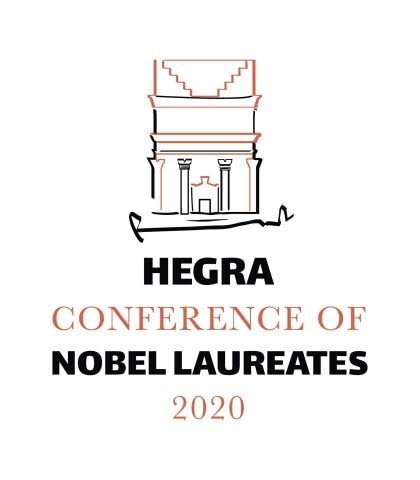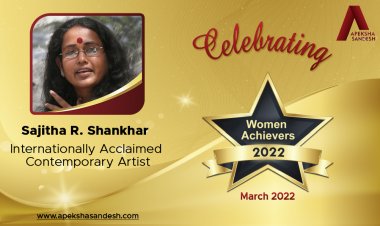Hegra Conference of Nobel Laureates 2020 Launches in AlUla, Saudi Arabia

- 3-day conference theme is “Transmission – A Shared Heritage”
- 18 Nobel Laureates participating with social & political leaders from 32 countries
ALULA, Saudi Arabia: The Hegra Conference of Nobel Laureates was officially launched today in AlUla, Saudi Arabia. The conference takes place from 30 January - 1 February, bringing together 18 Nobel Laureates of Peace, Economics, Literature, Physics, Chemistry, Physiology and Medicine alongside distinguished social and political leaders from 32 different countries, to discuss and offer solutions to improve the state of humanity and the world. It is hosted by Saudi Arabia’s Minister of Culture and The Royal Commission of AlUla Governor His Highness Prince Badr bin Abdullah bin Farhan Al Saud.
For millennia, AlUla has been the place where people from all religions and different cultures have gathered, to think, discuss and exchange ideas. In this spirit, the Hegra Conference is impact and solution-driven, and the discussions aim to conclude in the development of clear-cut solutions in regards to the future of education, health, agriculture and economics.
Outcomes and recommendations from previous gatherings include the need for convening a global conference on world debt, pooling global AIDS research, and the creation of the Middle East Science Fund (MESF).
Previous editions of the conference focused on a wide variety of complex issues, such as the role of education in combating terrorism, nonproliferation, poverty, economic empowerment, culture and the impact of globalisation on societies around the world.
This year’s theme, Transmission: A Shared Heritage, examines how the transmission of ideas is a fundamental principle not only of any civilisation, but of humanity as a whole.
As the site of the 2020 Hegra Conference of Nobel Laureates, and in line with Vision 2030, AlUla is committed to developing new industry and empowering women and young people to create new businesses. The Cultural Manifesto for AlUla sets a clear direction for the long-term development of the region and RCU’s commitment to sustainable and responsible tourism. It prioritises the preservation of the region, its history and development of skills for current and future members of the community.
HH Prince Badr bin Abdullah bin Farhan Al Saud, Saudi Arabia Minister of Culture and Governor of the Royal Commission for AlUla welcomed delegates to the conference and said:
“For millennia, AlUla has been a cultural beacon and a meeting place of nations, where people from all religions, cultures and ideologies have gathered to exchange ideas, knowledge and trade. Today we meet with the same passion of our ancestors.
“That is our deep belief in the role of inspiring and creative people, who present solutions to world problems and disputes, and who promote peace and prosperity, contributing to the development of humanity and sustainability at all levels. We hope that this conference will provide Nobel Prize winners a unique platform to revive the historical role of Alula in global cultural exchange.”
Audrey Azoulay, Director General of UNESCO told conference delegates, “The universality and diversity that is seen here in AlUla ensures that heritage is a motive for peace, education and more. It is imperative for us to recognise the various aspects of history and embrace how heritage has a role in peaceful discourse and to create a diversity of ideas.”
Amr AlMadani, CEO of the Royal Commission for AlUla added, “In keeping with the conference theme of transmission, we are actively reinventing the cultural landscape of AlUla as nature and the arts come together. Today we are convening some of the world’s greatest thinkers in a contemporary place in an ancient land: for discovery, intellectual expression and cultural exchange that can bridge the past to the future.”
Richard Attias, curator of the conference, comments, “Understanding and appreciating our history and culture while sustainably sharing it with new generations is crucial to improving the state of humanity. In these current uncertain times driven by political, economic, cultural, health and social crises around the world, hosting this conference in a thousand years old site will allow us to go back to our roots with humility and humanism.”















































